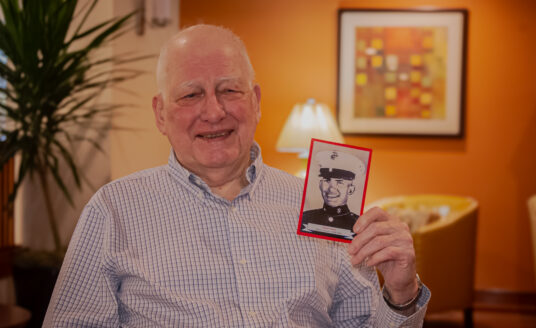One of the most important decisions many of us will ever have to make is choosing the right hospice provider and care for a senior loved one, allowing them to complete their life with dignity and in as much comfort as possible.
What is hospice care? In short, it’s end-of-life care for those who are expected to live for six months or less. In many instances, people enter hospice care after deciding to no longer pursue treatment for a condition or attempt to extend their life. Instead, they opt for pain management and to be as comfortable as possible for their remaining time.
While most hospice organizations provide the same basic services, their resources and attributes they offer for your family’s needs – such as religious affiliation and insurance compatibility – can vary greatly.
Hospice care can take place in a variety of settings, ranging from a hospital, to a hospice house, to a person’s own home. Where it takes place is often impacted by how much the patient’s family is able to manage their loved one’s care. So, the amount of help the family is able to offer is key in the decision-making process.
Important questions to ask hospice providers:
- What is expected of family caregivers, and will the hospice organization provide training for them?
- How often will a hospice team member visit?
- What is the expected response time if a hospice team member is needed?
- Are there any services, medications, or equipment the hospice team doesn’t provide?
- What kind of bereavement support is offered by the hospice service?
If your loved one is a veteran, ask if the provider is We Honor Veterans Certified. Organizations that are certified provide specific care related to the special needs of those who have served in the armed forces.
Finding a trusted hospice provider:
One way to find out information about a hospice provider is to ask your senior loved one’s doctor for a referral to a trusted organization. You can also check around in your community to ask about providers on which friends have relied to care for their family members. Inquire with members of your church or social organizations, ask your neighbors or check with your colleagues to find out who they turned to when they needed end-of-life care for a family member. Were they satisfied with the experience? Why or why not?
Another way to find information is to request an informational. This is typically a call from a member of the hospice care provider team to the family and provides a one-to-one opportunity to address many questions about Hospice and end of life care.
Once you’ve identified a potential candidate or two, it’s time to turn to the internet to make sure the organizations are accredited. While accreditation or endorsement by these agencies isn’t required by law, and a lack of approval doesn’t mean the organization isn’t reputable, it’s advisable to have a seal of approval from an independent evaluator.
Another place to check for information is your state’s hospice association website. Find information about hospice care in Missouri at mohospice.org. Learn about Bethesda’s Hospice Care by clicking here. Find information about hospice care in Illinois by clicking here. Find hospice providers anywhere in the country by accessing the National Hospice Locator.
Types of hospice care:
- Routine home care: A hospice care provider will come to where the patient lives to provide therapeutic care, coordinating a schedule with them and their family members.
- Continuous home care: Around-the-clock care for an extended period of time to address demanding needs, including treatment of severe pain.
- General inpatient care: When symptoms are too severe to be managed at home, care may take place during an inpatient stay. Sometimes, the condition can be brought under control so the person may return to the comfort of their own home.
- Respite care: When family members are capable of providing most of the care their loved one receives, they may find they need a brief break from their responsibilities. This can happen in an inpatient hospice setting, in a skilled nursing facility or a hospital for a set period of time.
Like many senior living, care and service organizations, Bethesda offers a team of compassionate caregivers to help families navigate end-of-life decisions. The team includes a registered nurse case manager, hospice aides, chaplains, social workers, physicians, therapists, and dieticians who will all work together to make sure your senior loved one’s needs are addressed.
A good program will work with you to tailor an individualized plan to suit your senior’s unique needs. You can be confident your loved one will get the compassionate care they deserve, and be comfortable in knowing that they’re well taken care of.
Want to find out more?
If you’d like to stay up to date with Bethesda Health Group, sign up here to receive our blog and newsletters!
"*" indicates required fields
Related Articles
Want to find out more?
If you’d like to stay up to date with Bethesda Health Group, sign up here to receive our blog and newsletters!
"*" indicates required fields



